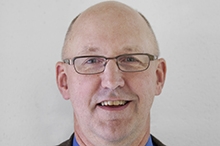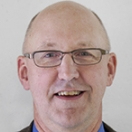

Craig Johnson is being honored as a Climate Education and Literacy Champion of Change.
Early in my career as a science educator, I attended a lecture on Minnesota’s changing climate given by a well-known University of Minnesota Ecology professor. The concept of climate change was relatively new to me at the time, and I was startled to hear that some of the most dramatic seasonal, climate change-induced temperature variations in the United States were predicted to occur in Minnesota and the upper Midwest over the coming decades. Was it true? How did he know? What could this mean for the places in Minnesota that are important to me? Were similar impacts in store for the rest of the world? How much should I worry, and what, if anything, should I do about it? Whether I realized it at the time or not, I was on my own path toward climate literacy.
Twenty years later, as a teacher at the School of Environmental Studies (SES), I continue to work to understand the complexity of these questions and to challenge my high school students to wrestle with the implications of these questions in their own lives as well. At SES, we embrace a mission that calls on our learning community to “develop active citizen leaders who are environmentally informed, self-perpetuating learners, and connected to the local and global community.” Over the past decade, climate education has played an integral part in bringing our mission to life. This issue provides fertile ground for getting students to engage scientific concepts and processes in timely and relevant ways and, more broadly, to examine the systemic relationships between science, economics, politics, international relations, and ethics that are embedded in the challenge of fighting climate change.
In order to prepare our students to be the next generation of effective citizen leaders, it is equally important that they have authentic opportunities to engage the issues that are important to them.
At SES, campus renewable-energy initiatives, climate-related school and non-profit partnerships, scientific modeling projects, and a host of student-led climate-change mitigation efforts provide testimony to the fact that our students are interested in learning about and addressing the challenges inherent in a changing climate.
The societal challenges today’s students will face as adults will not be the same as those of my generation. As educators, we have the responsibility to provide not the education we received, but the one our students will need. For the past several years, students and faculty from SES and a variety of international partner schools have attended the annual United Nations Framework Convention on Climate Change Conference of the Parties. Members of the youth constituency at these conferences can often be seen wearing t-shirts with their now-familiar slogan, “How Old Will You Be in 2050?” It is a challenging question, not only in terms of the implications it has for the decisions we make today concerning the climate issue, but also in terms of the obligation we as educators have to provide our students with the knowledge, skills, and habits of mind they will need to effectively address the challenges of the world they will inherit.
Craig Johnson teaches Senior Environmental Studies and Advanced Placement Environmental Science at the School of Environmental Studies in Apple Valley, Minnesota.


